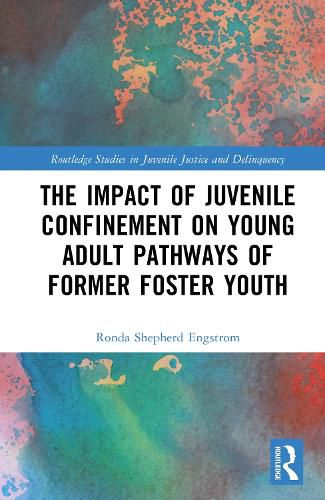Readings Newsletter
Become a Readings Member to make your shopping experience even easier.
Sign in or sign up for free!
You’re not far away from qualifying for FREE standard shipping within Australia
You’ve qualified for FREE standard shipping within Australia
The cart is loading…






This book shares results from a mixed method study of former foster youth and the experiences that influenced the trajectory of their lives during their transitional adulthood years.
Readers will come away from the book with a better understanding of the life events that most significantly influence foster youth's transition to adulthood and how this knowledge can inform policy and practice. Through an extensive review of the literature, readers will gain extensive knowledge of research in the areas of foster youth and offending trajectories, other young adult outcome of foster youth, and the effect of juvenile detention on likelihood of adult offending. Quantitative findings from a national sample of foster youth highlight the negative impact of confining foster youth as juveniles. Qualitative findings point to life experiences that promote self-agency, determination, and resiliency in youth aging out of care. Figures and tables present these findings in an easily accessible format. Readers will learn through both the quantitative and qualitative results that the ages of 17-19 are of utmost importance in helping former foster youth transition successfully to adulthood. Narratives of participant stories with direct quotations make the qualitative findings a compelling read. Numerous policy and research implications of the findings are shared that can direct academics and practitioners alike.
Both practitioners working with youth transitioning out of care, researchers, and instructors will find this book a practical and meaningful resource. Practitioners will gain insights that will enable them to provide needed supports for young people transitioning out of foster care. Policy makers may use the research to help advocate for policies suggested by the study's findings such as increased use of diversion and extended foster care. Findings of the study raise new questions for researchers to explore further. Instructors will find this an excellent supplemental text to a graduate level social work, sociology, or criminology course.
$9.00 standard shipping within Australia
FREE standard shipping within Australia for orders over $100.00
Express & International shipping calculated at checkout
Stock availability can be subject to change without notice. We recommend calling the shop or contacting our online team to check availability of low stock items. Please see our Shopping Online page for more details.
This book shares results from a mixed method study of former foster youth and the experiences that influenced the trajectory of their lives during their transitional adulthood years.
Readers will come away from the book with a better understanding of the life events that most significantly influence foster youth's transition to adulthood and how this knowledge can inform policy and practice. Through an extensive review of the literature, readers will gain extensive knowledge of research in the areas of foster youth and offending trajectories, other young adult outcome of foster youth, and the effect of juvenile detention on likelihood of adult offending. Quantitative findings from a national sample of foster youth highlight the negative impact of confining foster youth as juveniles. Qualitative findings point to life experiences that promote self-agency, determination, and resiliency in youth aging out of care. Figures and tables present these findings in an easily accessible format. Readers will learn through both the quantitative and qualitative results that the ages of 17-19 are of utmost importance in helping former foster youth transition successfully to adulthood. Narratives of participant stories with direct quotations make the qualitative findings a compelling read. Numerous policy and research implications of the findings are shared that can direct academics and practitioners alike.
Both practitioners working with youth transitioning out of care, researchers, and instructors will find this book a practical and meaningful resource. Practitioners will gain insights that will enable them to provide needed supports for young people transitioning out of foster care. Policy makers may use the research to help advocate for policies suggested by the study's findings such as increased use of diversion and extended foster care. Findings of the study raise new questions for researchers to explore further. Instructors will find this an excellent supplemental text to a graduate level social work, sociology, or criminology course.